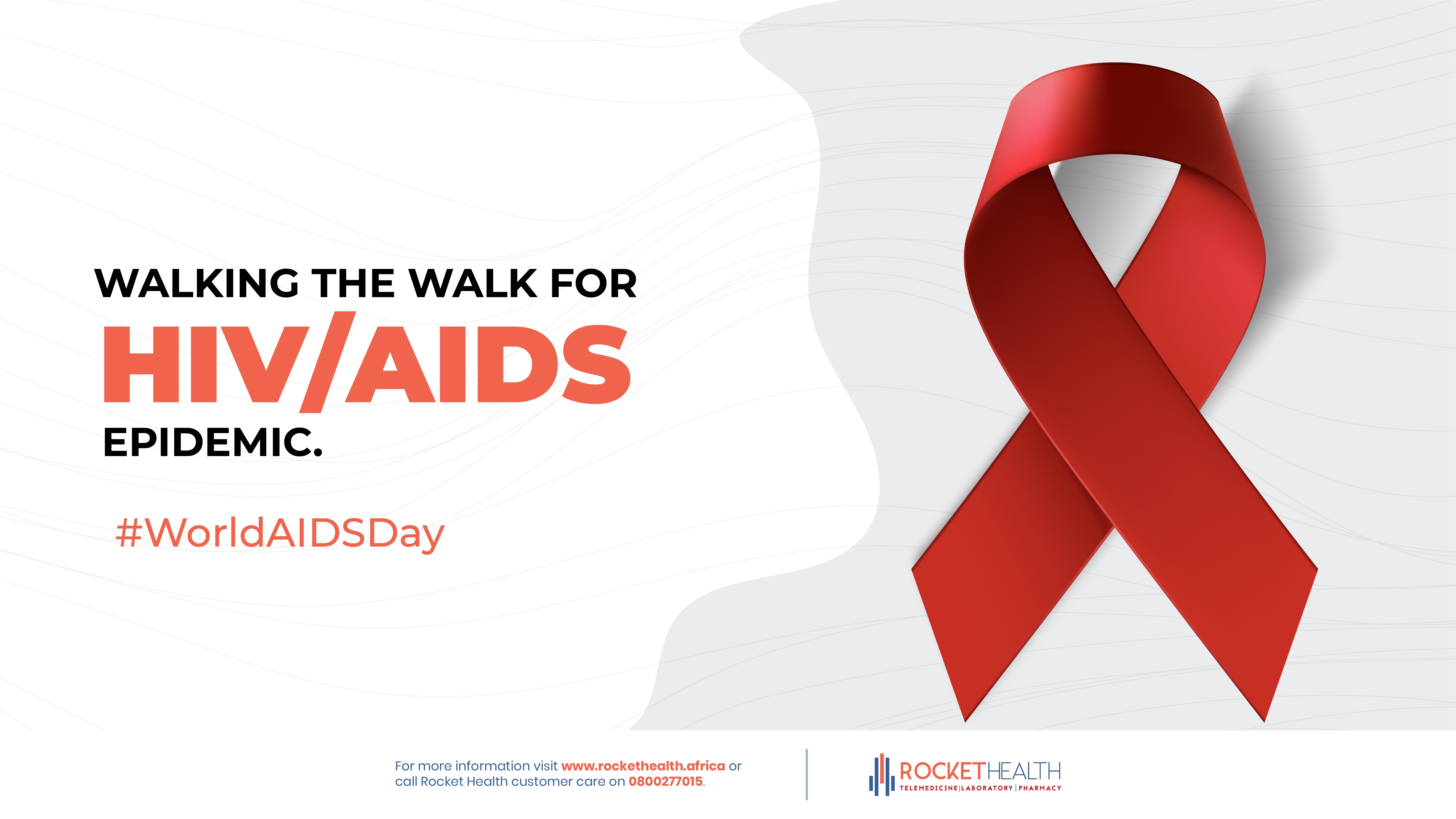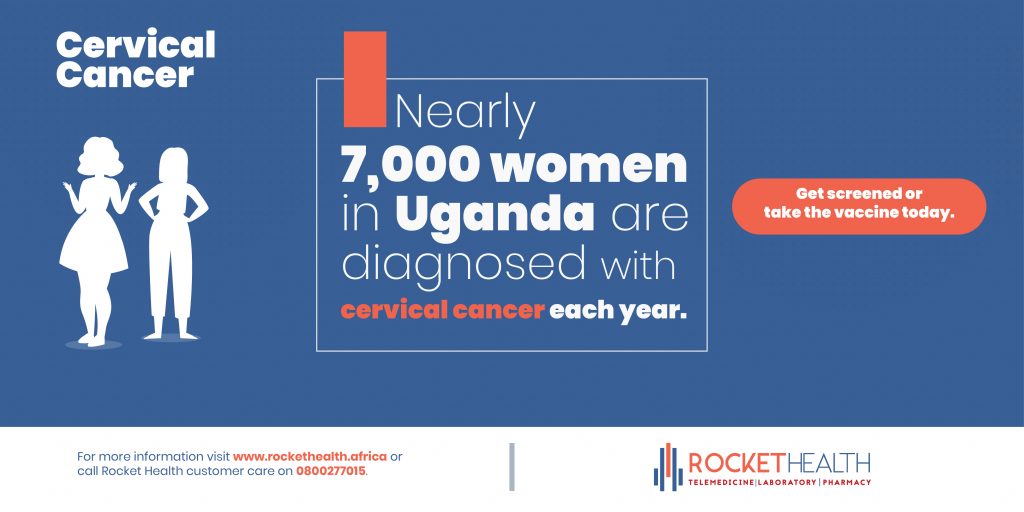Beware! Having multiple sexual partners could increase the risk of getting HPV that causes Cervical Cancer.
January is Cervical Cancer awareness month. Nearly 7,000 women in Uganda are diagnosed with cervical cancer each year.
This month, we invited Dr Priscilla Apolot, a medical doctor with Rocket Health to address a few questions.
What is Cervical Cancer?
Cervical cancer is a malignant tumour that affects cells of the cervix. It is the most common cancer among women in Uganda and 4th in the whole world.
The cervix is the lowermost part of the uterus that connects to the vagina. It is about 2.5cm in a non-pregnant woman.
What causes cervical cancer?
There are many possible causes but the commonest and most implicated organism is the Human Papillomavirus(HPV) — particularly type 16 and 18. HPV is a sexually transmitted infection and can also be spread by men. Most men who contract HPV never develop symptoms and the infection usually goes away completely by itself. However, if the virus does not go away, it can cause genital warts or penile or anal cancer in men.
The factors that increase your risk of getting HPV include;
- Having multiple sexual partners
- Early sexual debut
- Having other sexually transmitted diseases
- A weakened immune system
- Smoking
- Low socioeconomic status
- High parity
- Family history
Please note that once one is infected with HPV, their bodies can clear the infection without treatment. However, in 1–2% of women, the infection persists and the cells of the cervix go into a precancerous state known as Cervical Intraepithelial Neoplasia (CIN).
CIN is 100% curable but it takes about 10–20 years for it to develop into cervical cancer. Ladies have the advantage of time to have the precancerous stage detected and treated before it progress to cancer.
How can cervical cancer be detected?
Most features of cervical cancer present at a later stage, so it’s important to screen regularly and if detected in the precancerous stage receive treatment as soon as possible.
Other features to look out for include;
- Abnormal vaginal discharge. It can be scanty or copious, often foul-smelling and may be purulent or stained with blood.
- Abnormal vaginal bleeding. Irregular bleeding, even after menopause. Initially scanty then later becomes continuous. Post-coital bleeding is also common.
- Pelvic pain
- Backache
- Hematuria (presence of blood in urine)
- Urinary or faecal incontinence
Can HPV Infections be prevented?
HPV infections can be treated when you;
- Limit the number of sexual partners
- Practice safe sex
- Avoid smoking
- Screen regularly.
How is Cervical Cancer Screening done?
Cervical cancer screening is mainly done by 3 methods;
- A pap smear
- VIA-Visual inspection under acetic acid
- VILI-Visual inspection under Lugol’s Iodine.
It is recommended that screening begins at the age of 21 and one once every 3 years. This can be done at the Rocket Health Clinic
When and how to vaccinate?
Vaccination is done commonly for pre-teen girls with the assumption that they have not started having any sexual intercourse. However, it can also be given to any female up until the age of 26 years. After that, regular screening is the best option.
For more information about cervical cancer, consult the doctor now.
To schedule cervical cancer screening, call toll-free 0800277015 or order online.




